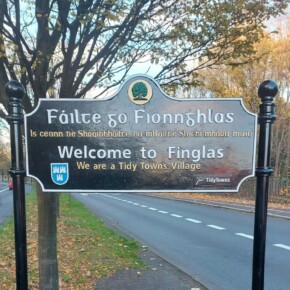Housing problem exacerbated by rising rents
Dublin People 15 Jun 2014
NEW figures that confirm average Northside rents have increased by more than 12 per cent in some areas have sparked fresh calls for measures to protect cash-strapped tenants.
The Private Residential Tenancies Board (PRTB) statistics show monthly rents have increased in all Dublin areas with Dublin 9 the hardest hit by an increase of 12.7 per cent.
In Dublin 1 rents have risen by 6.9 per cent and in Dublin 11 a 3.8 per cent increase was recorded. In the west of the city, rents in Dublin 15 have gone up by 5.4 per cent bringing them to just over e1,000 a month.
The average rent across the city in the first quarter of this year is up by e46 a month to e1,089 compared to the same time last year when rents were e1,043.
Agencies and charities working with the homeless have warned of an impending crisis as more families are pushed to the brink by increases in rents.
Last week a new protocol was agreed within the four Dublin local authority areas that allows the Department of Social Protection to use discretion to help families about to face eviction.
Current caps on rent supplement payments mean many families are facing an uphill struggle to pay increasing rents but the agreement between local authorities, the Dublin Regional Homeless Executive, housing agency Threshold and the Department of Social Protection is designed to protect them.
Under the protocol, due to be launched this week, extra money can be paid by the State to landlords for up to 13 weeks for families under threat of homelessness.
The payment will be made on the recommendation of Threshold to the Department of Social Protection and can be extended by a further 13 weeks if families still risk becoming homeless.
However, the protocol has already been attacked by Northside TDs including recently elected Ruth Coppinger (SP) in Dublin West.
“It does not go anywhere close to being a solution to the housing crisis,
? she said.
“While the increase will hopefully stop some families being made homeless immediately, all it really amounts to is a stay of execution because it does nothing to tackle the cause of the problem.
?
Deputy Coppinger said the housing crisis was one of the biggest issues raised during the recent elections and it has sparked housing action campaigns, including in Minister for Social Protection Joan Burton’s Dublin West constituency.
“Unfortunately, what she is putting forward is a sticking plaster solution, while the Minister continues to pass the buck on tackling the root causes of the problem,
? Deputy Coppinger added.
“What is immediately needed is rent controls to burst this rent bubble and stop families being made homeless.
?
Last week also saw the publication of a new report from the National Economic and Social Council (NESC) that argues that social housing is
‘at the crossroads’.
The report says
“ambitious action is required if Ireland is to have a more cost-effective and stable housing system
?.
“Despite state investment of over e2 billion per annum, the Irish housing system offers little protection – for the State or for individuals – against the vagaries of housing and financial markets,
? said NESC Director, Rory O’Donnell.
“The central challenge is to create an effective and interconnected combination of finance, supply and cost rental. Experience strongly suggests that these connections will not be established automatically or by providing incentives to uncoordinated private or public actors.
“Instead NESC believes new institutional arrangements are necessary to move policy in this direction.
?
Sinn Féin Housing spokesperson and Dublin North West TD, Dessie Ellis (SF), welcomed publication of the NESC report saying much of it vindicated Sinn Féin housing policies.
“The report rightly recognises we are at a crucial point for housing in Ireland,
? he said.
“We can begin to turn back the tide and start to provide for people’s needs as a priority or we can continue into the mire, dismantling local authority housing and throwing the scraps to the private profit market with ever increasing subsidisation by the public purse.
?
Deputy Ellis said local authorities must establish housing bodies under their control to access low cost finance in order to build homes, as recommended in the report.
He also said the Government should tackle rising rents through regulation and local authorities should provide rental properties at cost price outside of the traditional social housing system.











